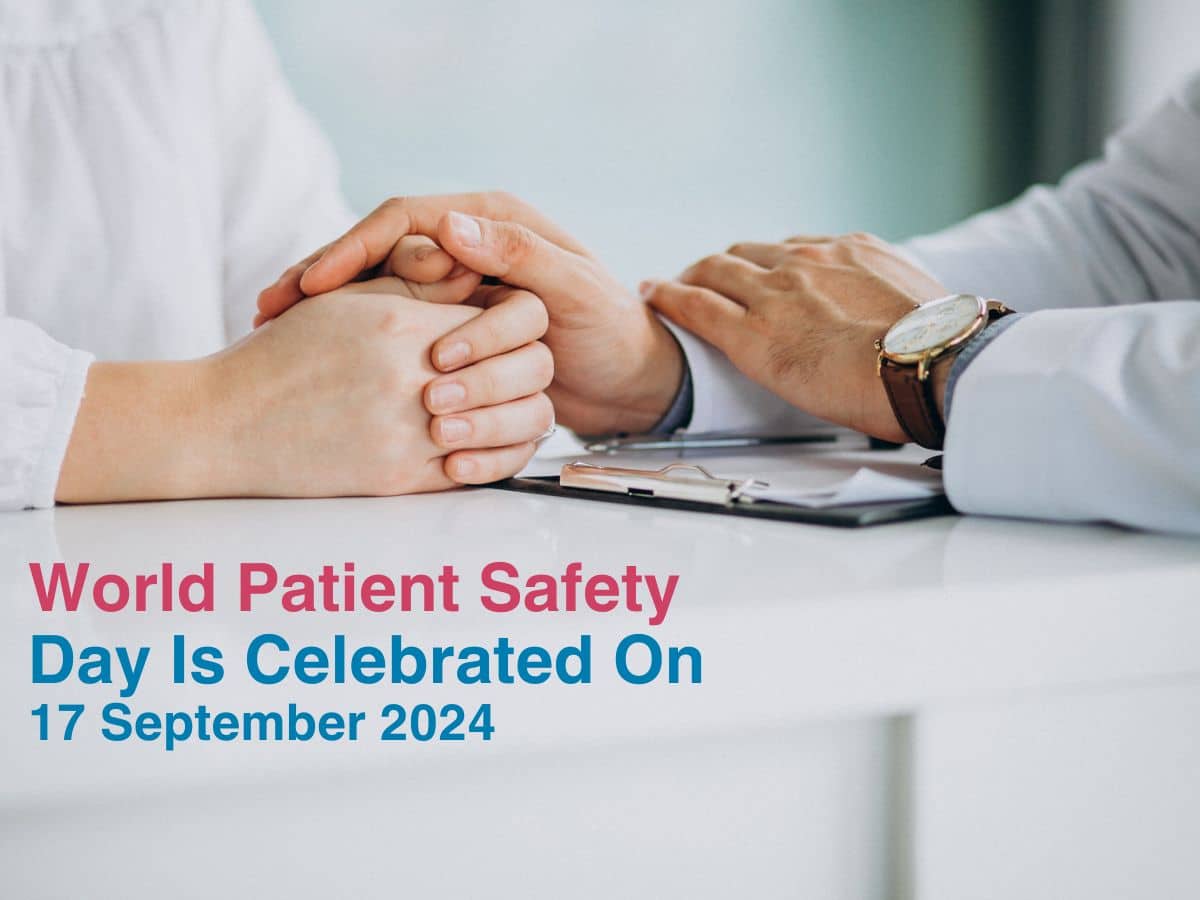
World Patient Safety Day Is Celebrated On 17 September 2024

World Patient Safety Day is celebrated on 17 September every year, and the theme for this year is ‘Improving Diagnosis For Patient Safety’. This means anyone involved in caregiving- like doctors, nurses, health care-related helpers and health ministries need to come together to make policy changes, and strengthen their need for committed caregiving and making patient safety a priority. The catchy slogan that goes along very well with the theme is this ‘Get it right, make it safe!’. This is another way of saying that making the right diagnosis within a short period of time can reduce unnecessary delay and greatly improve patient prognosis, ensuring patient safety is omnipresent.
The Importance Of Celebrating World Patient Safety Day
Diagnosis error is one aspect of medical practice that is an unfortunate development due to multiple factors-it may be due to delay, wrong expertise, improper maintenance of health records, a communication issue between the lead doctor and the nurses, not listening and paying attention to the patient, etc. among various other possible factors. It literally means the physician may say you are suffering from condition A when it is probably or actually condition C. We will give you a very simple example- you walk into the hospital complaining of severe acid reflux and the doctor says it is due to increased acidity and gives you medication for that. If you don’t have further issues, it is ok, but what happens if you get chest pain, and your troponin levels are high? The reflux may have been related to a cardiac event instead! This misdiagnosis could have cost you your life, right?
This is how making the correct diagnosis ties in so much into better patient prognosis and safety is an essential part in this whole approach. A recent study by Harvard has said that over 5.2 million medical errors occur annually, and this number has shown a worrisome upward trend in recent years. This meant more malpractice suits were filed. The issue is also precipitated by doctors having to deal with high patient flow numbers per day. A medical error can happen due to already present comorbidities, any unfamiliarity with the patient, not having all the relevant information to work with and the errors made can be broadly classified into two categories- cognitive and system errors respectively.
Conclusion
One of the best preventive measures which can cut down the number of these errors by more than half is a course that doctors can take- the Acute Critical Care Course (ACCC), which if implemented well everywhere, and with a greater push for it in rural areas can really help in the long run. So, you see if more doctors take this course and learn how to take care of patients better, then patient safety is definitely going to improve right? This will be one such area of intense focus with great dividends in the future, especially in the Indian context.
Frequently Asked Questions
Who organises World Patient Safety Day, and when does it take place every year?
The World Health Organization (WHO) is responsible for organising this annual thematic event, and it happens on 17 September.
How do patients contribute to patient safety?
By being proactive with relevant information, and then asking physicians the right questions, until they are satisfied with the answers given. You should not place blatant trust on a physician always, though their intentions may be harmless.
What are some factors that contribute to an increase in medical error?
High workload, scheduling and staffing issues, engaging in stereotypical behaviour and making assumptions about patients, communication errors, wrong information in medical records-these are some potential causes for medical errors made by clinicians.
How can healthcare ministries and organisations help reduce medical error?
By ensuring they have the right number of staff following shifts, reducing repetitive workload by implementing appropriate measures, and training doctors, nurses or other such personnel can help.
How can healthcare providers improve care in general?
They can listen to patients with care, understand their concerns and give them sensible solutions-it is then a decision that the patient is also going to be a part of.






